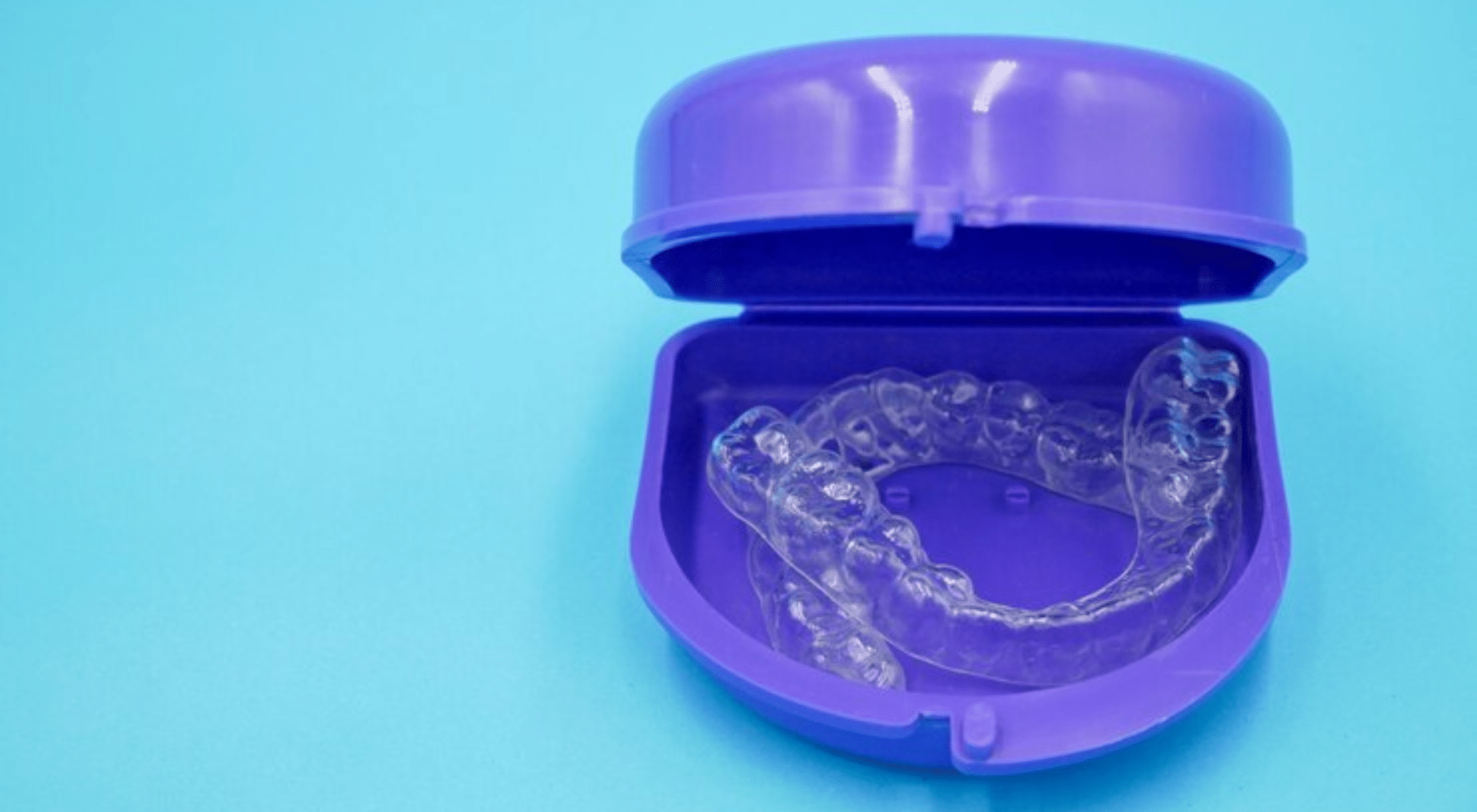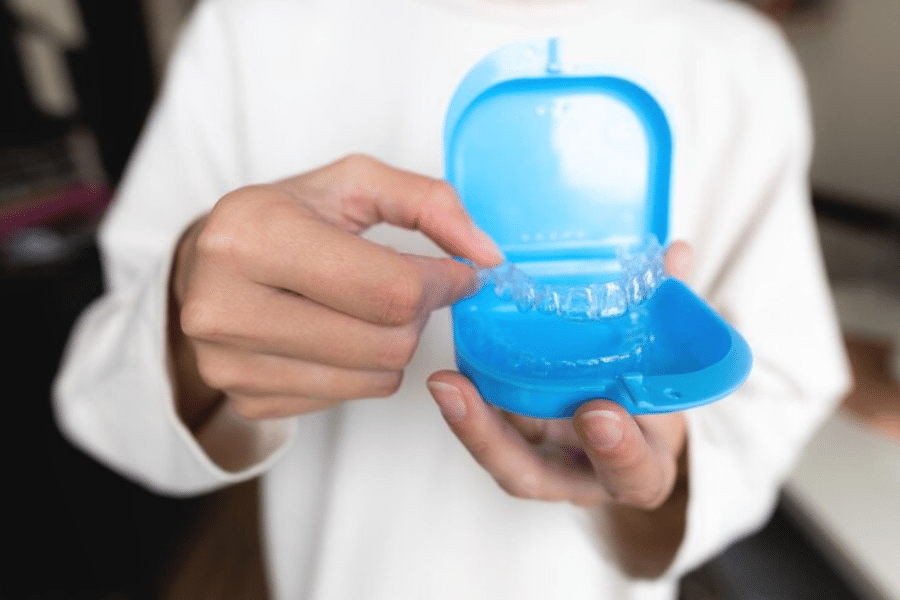Published on April 24, 2024

In the realm of oral health, mouth guards are often associated with sports and teeth grinding, but their benefits extend far beyond these conventional uses. While they are indeed vital for protecting teeth during physical activities and alleviating bruxism symptoms, mouth guards offer a myriad of unexpected advantages that many people may overlook. Beyond safeguarding against dental injuries during sports, these guards play a crucial role in promoting overall wellness and improving quality of life.
From providing relief for temporomandibular joint (TMJ) pain to aiding in sleep apnea management, these small yet powerful devices offer a range of unexpected advantages. Whether you’re an athlete seeking to enhance performance, someone struggling with teeth grinding or jaw pain, or simply looking to reduce stress and improve sleep, understanding the diverse benefits of mouth guards can lead to better oral health and overall well-being.
In this blog, we’ll delve into the lesser-known benefits of wearing a mouth guard and how they can positively impact various aspects of your life. Let’s explore these unexpected benefits in detail.

Protection During Sports and Physical Activities
Participating in sports and physical activities can pose a risk to your dental health and overall well-being. Mouth guards offer essential protection in various ways:
Preventing dental injuries and trauma: Mouth guards act as a cushion to absorb and distribute the force of impact, reducing the risk of broken or knocked-out teeth, lip and cheek injuries, and damage to the tongue.
Safeguarding against concussions and head injuries: Mouth guards not only protect the teeth but also help reduce the risk of concussions and other head injuries by providing a layer of cushioning between the upper and lower jaws.
Enhancing athletic performance: Beyond protection, mouth guards have been shown to improve athletic performance by promoting proper breathing and jaw alignment, reducing jaw tension, and increasing overall comfort during physical exertion.
Wearing a mouth guard during sports and physical activities is essential for individuals of all ages and skill levels to minimize the risk of dental trauma and maximize performance and safety.
Night Guards for Bruxism and Teeth Grinding
Bruxism, commonly known as teeth grinding or clenching, can have detrimental effects on your oral health and overall well-being. Bruxism involves the involuntary grinding, clenching, or gnashing of teeth, often during sleep. Over time, this habit can lead to worn-down tooth enamel, chipped or cracked teeth, jaw pain, headaches, and even temporomandibular joint (TMJ) disorders. Night guards offer valuable protection and relief from the consequences of this condition.
Role of night guards in preventing teeth grinding
Night guards, also called occlusal splints or bite guards, are custom-fitted oral appliances worn during sleep to create a protective barrier between the upper and lower teeth. By cushioning the impact of grinding and clenching, night guards help prevent dental damage and alleviate associated symptoms.
Improving sleep quality and reducing jaw pain
By reducing the intensity of teeth grinding and clenching, night guards not only protect your teeth but also promote better sleep quality. Additionally, they can alleviate jaw pain, headaches, and muscle tension associated with bruxism, allowing you to wake up feeling refreshed and pain-free.
Night guards are a simple yet effective solution for managing bruxism and safeguarding your oral health and overall well-being while you sleep.
TMJ Pain Relief
Temporomandibular joint (TMJ) disorders can cause significant discomfort and interfere with daily activities. TMJ disorders affect the joints and muscles that control jaw movement, leading to symptoms such as jaw pain, stiffness, clicking or popping sounds, difficulty chewing, and headaches. These conditions can arise from various factors, including stress, teeth grinding, misaligned teeth, or arthritis. Mouth guards offer relief by addressing the underlying issues contributing to TMJ pain.
How do mouth guards alleviate TMJ pain and discomfort?
Mouth guards are designed for TMJ relief work by providing cushioning and support to the jaw joint, reducing the pressure and friction that exacerbate TMJ symptoms. By promoting proper jaw alignment and preventing excessive clenching or grinding, these oral appliances help alleviate pain and discomfort associated with TMJ disorders.
Promoting jaw alignment and reducing tension
Mouth guards for TMJ pain relief are often customized to fit the individual’s bite pattern, ensuring optimal jaw positioning and alignment. By minimizing muscle tension and encouraging relaxation, these devices help alleviate TMJ-related symptoms and improve overall jaw function and comfort.
Sleep Apnea Management
Sleep apnea is a serious sleep disorder characterized by pauses in breathing or shallow breaths during sleep. Sleep apnea occurs when the muscles in the throat relax excessively, leading to obstruction of the airway and disrupted breathing patterns during sleep. Common symptoms include loud snoring, gasping for air during sleep, morning headaches, excessive daytime sleepiness, and difficulty concentrating. Mouth guards play a crucial role in managing mild to moderate cases of sleep apnea.
How do mouth guards help in managing mild to moderate sleep apnea?
Oral appliances, such as mandibular advancement devices (MADs) or tongue retaining devices (TRDs), are effective in treating mild to moderate obstructive sleep apnea. These devices work by repositioning the lower jaw or tongue to keep the airway open, preventing airway collapse and promoting uninterrupted breathing throughout the night.
Improving breathing and reducing snoring:
Mouth guards for sleep apnea management help improve airflow and reduce snoring by preventing the soft tissues in the throat from collapsing and blocking the airway. By maintaining proper jaw alignment and supporting the muscles of the throat, these devices facilitate better breathing and promote restful sleep.
Stress Reduction and Anxiety Relief
Stress and anxiety can have a significant impact on oral health, leading to various issues such as teeth grinding, jaw clenching, and nail-biting. Mouth guards offer effective solutions for stress reduction and anxiety relief:
Exploring the connection between oral health and stress
Stress can manifest in various ways within the oral cavity, including increased muscle tension, jaw pain, and the development of oral habits like teeth grinding or clenching. Chronic stress may contribute to the onset or exacerbation of conditions such as temporomandibular joint disorder (TMJ) and gum disease.
Role of mouth guards in reducing stress-related habits like nail biting
Mouth guards not only protect the teeth from damage caused by grinding or clenching but also serve as a physical barrier to discourage stress-induced habits like nail biting. By providing a cushioning effect and preventing direct contact between the teeth or nails, mouth guards help break the cycle of harmful behaviors associated with stress.
Promoting relaxation and mental well-being:
Wearing a mouth guard can promote relaxation by reducing muscle tension in the jaw and promoting proper jaw alignment. This can lead to a decrease in discomfort associated with stress-related jaw problems and contribute to an overall sense of well-being. Additionally, the act of wearing a mouth guard may serve as a reminder to practice mindfulness and stress-reduction techniques, further enhancing its therapeutic benefits.
The benefits of wearing a mouth guard extend far beyond simple dental protection. Whether you’re an athlete looking to safeguard against sports-related injuries, someone struggling with teeth grinding or TMJ pain, or simply seeking stress relief, a mouth guard can be a game-changer. By understanding the various ways in which mouth guards can benefit oral health and overall well-being, individuals can make informed decisions about incorporating them into their daily routines.
Don’t overlook the importance of investing in your oral health. From protecting against physical trauma to promoting better sleep and stress reduction, these guards offer versatile solutions for a range of dental and health concerns.
